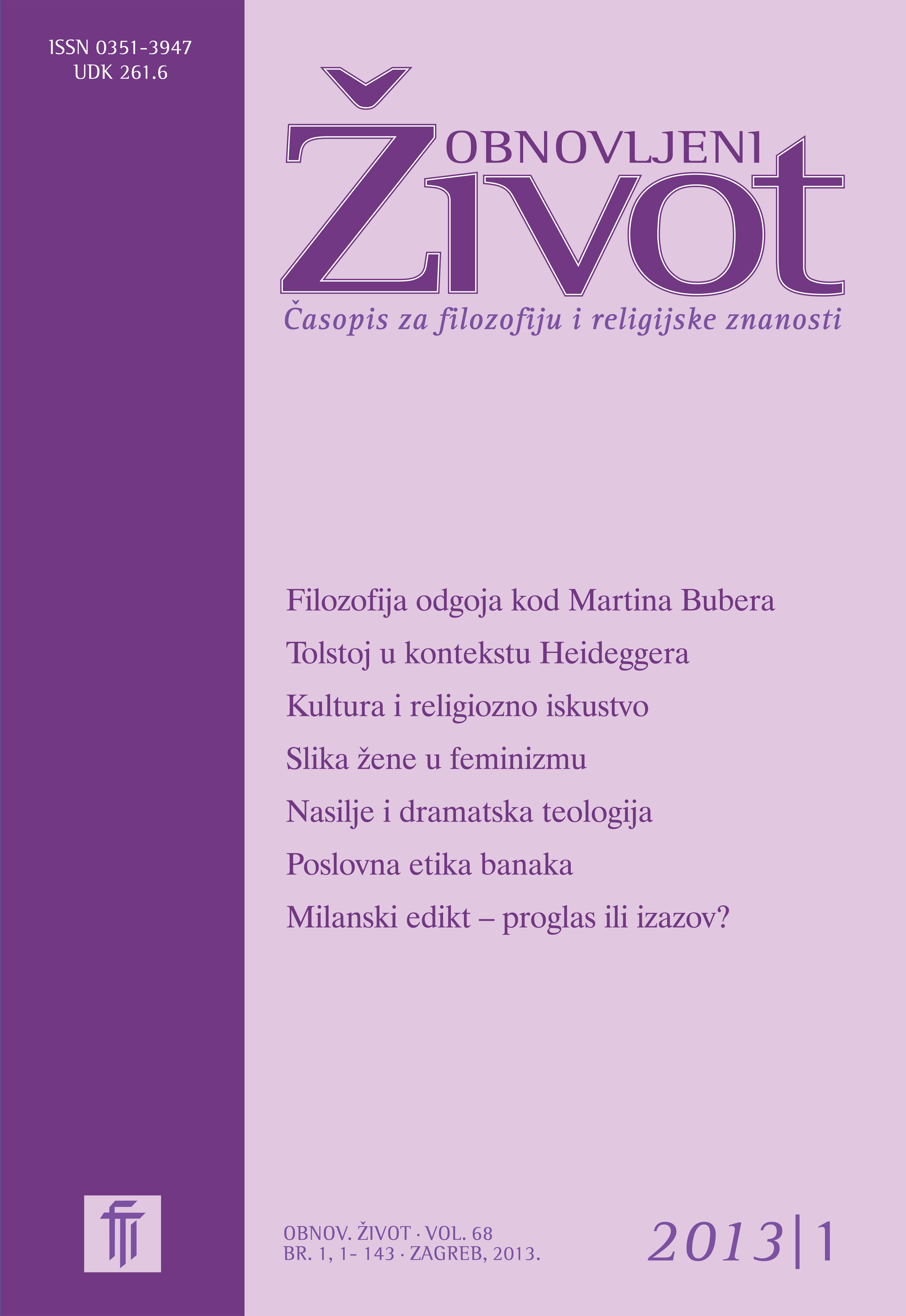Popular Culture as a Setting for Religious Experience
Keywords:
popular culture, theology, art, religious experience, mass mediaAbstract
The article deals with the issue of popular culture and its legacy as being a »gold mine« for theological reflection and potential setting for religious and transcendent experience. In keeping with the thoughts of some Anglo–Saxon theologians and communicators who dealt with the relationship between theology and culture, such as Richard Niebuhr, Clive Marsh, William Romanowski or Gregor Goethals, it is thought that not only explicitly religious images and symbols can encourage reflection on God and meaning, but also those coming from a profane environment. Some products of popular culture, such as television shows, pop music, comic books or movies, which today are seen also as a kind of art, can become the mode for a new proclamation of Gospel parables to contemporary men and women, sometimes even more understandable than abstract theological discourse. The article discusses different models of the relationship between theology and contemporary culture, from those rejecting culture as being contrary to divine revelation, to those embracing culture as a locus theologicus. Also, it discusses the scientific discipline known as Media– Religion–Culture, which has been developing since the nineteen eighties, and which puts the spotlight on the complex and significant relationship between media, religion and culture. It thus raises the question of how to shape culture and the social construction of identity in the context of religious practices and meanings mediated by the mass media. Due to the enormous impact and quantity of media messages that we have today, the article reflects on the need for a Christian involvement of God’s »co–creators« in the field of production of media and cultural content. Their goal would be to develop imaginative works of art as instruments of power for bringing people to the faith by communicating love, mercy, forgiveness, freedom and other Christian as well as universal values.
Downloads
Published
Issue
Section
License
Jednom prihvaćeni članak obvezuje autora da ga ne smije objaviti drugdje bez dozvole uredništva, a i tada samo uz bilješku da je objavljen prvi put u Obnovljenom životu. Uredništvo će obavijestiti autora o prihvaćanju ili neprihvaćanju članka za objavljivanje.
Članci objavljeni u časopisu se, uz prikladno navođenje izvora, smiju besplatno koristiti u obrazovne i druge nekomercijalne svrhe.


